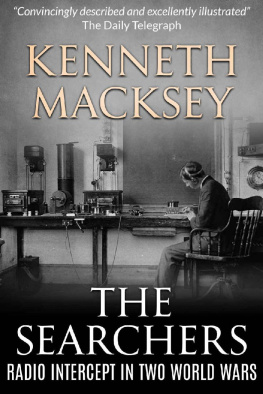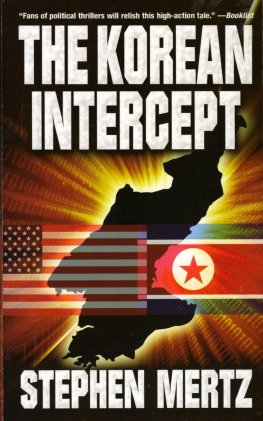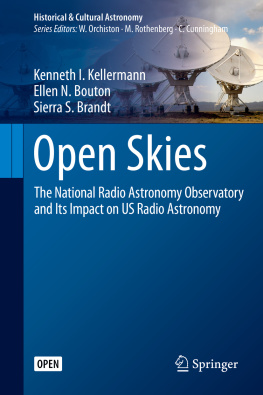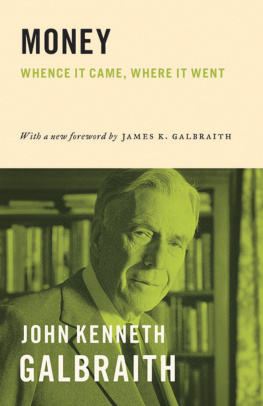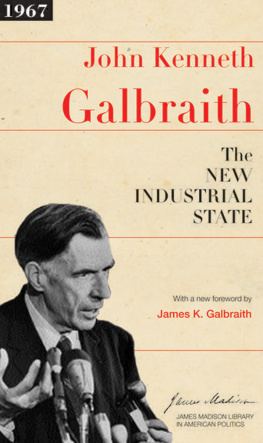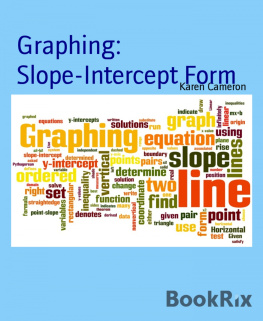Kenneth John Macksey - The Searchers: Radio Intercept in the Two World Wars
Here you can read online Kenneth John Macksey - The Searchers: Radio Intercept in the Two World Wars full text of the book (entire story) in english for free. Download pdf and epub, get meaning, cover and reviews about this ebook. year: 2018, publisher: Sharpe Books, genre: History. Description of the work, (preface) as well as reviews are available. Best literature library LitArk.com created for fans of good reading and offers a wide selection of genres:
Romance novel
Science fiction
Adventure
Detective
Science
History
Home and family
Prose
Art
Politics
Computer
Non-fiction
Religion
Business
Children
Humor
Choose a favorite category and find really read worthwhile books. Enjoy immersion in the world of imagination, feel the emotions of the characters or learn something new for yourself, make an fascinating discovery.
- Book:The Searchers: Radio Intercept in the Two World Wars
- Author:
- Publisher:Sharpe Books
- Genre:
- Year:2018
- Rating:3 / 5
- Favourites:Add to favourites
- Your mark:
- 60
- 1
- 2
- 3
- 4
- 5
The Searchers: Radio Intercept in the Two World Wars: summary, description and annotation
We offer to read an annotation, description, summary or preface (depends on what the author of the book "The Searchers: Radio Intercept in the Two World Wars" wrote himself). If you haven't found the necessary information about the book — write in the comments, we will try to find it.
The Searchers: Radio Intercept in the Two World Wars — read online for free the complete book (whole text) full work
Below is the text of the book, divided by pages. System saving the place of the last page read, allows you to conveniently read the book "The Searchers: Radio Intercept in the Two World Wars" online for free, without having to search again every time where you left off. Put a bookmark, and you can go to the page where you finished reading at any time.
Font size:
Interval:
Bookmark:
THE SEARCHERS
Radio Intercept in Two World Wars
Kenneth Macksey
Sharpe Books
Should you be interested in hearing about more news and info on special offers from Sharpe Books please visit sharpebooks.com and sign up to our newsletter.
If you are a book blogger or interested in reviewing any of our titles please also get in touch through our website.
Should you be a writer we are also accepting submissions.
Kenneth Macksey 2003
Kenneth Macksey has asserted his rights under the Copyright, Design and Patents Act, 1988, to be identified as the author of this work.
First published in 2003 by Cassell Military Paperbacks.
This edition published in 2018 by Sharpe Books.
Table of Contents
Preface
Shortly before he died, Ronald Lewin, classical scholar, soldier, one time head of the BBC Home Service, historian and author (above all of Ultra goes to War and The Other Ultra ) came to say goodbye. In our last conversation, when he dwelt on Ultra, he said that somebody should write about the Y Service, without whose interception of radio transmissions the British Ultra intelligence system would not have worked. Already, indeed, he was acutely aware that his Ultra goes to War was flawed because he had all but failed to mention it; and probably he knew too that his larger coverage of its importance in The Other Ultra did not fully do it justice. Moreover, by then he was much more knowledgeable about its activities from Sir Harry Hinsleys monumental British Intelligence in the Second World War and Aileen Claytons The Enemy is Listening .
Several years passed, a period in which public knowledge of the Ultra Secret was advanced, but mainly with emphasis on the cryptanalytical side of the story and little more than cursory mention of Y. In the meantime Harry Hinsley had publicly remarked that the effect of Enigma has been exaggerated and that Ultra was not a war winner but a war shortener. These were the thoughts of a man who really understood the subject and which prompted me to write Without Enigma in an attempt to rectify an imbalance of history something which Hinsley believed impossible.
Researching that book reminded me of Ronalds conviction that the tens of thousands of those who worked (on both sides) in Y deserved better recognition, especially because, whenever I casually asked publishers, historians and other knowledgeable people what the Y Services meant to them, the answer was far more often than not in the negative.
So one day I visited the Public Record Office in search of clues to provide insight into the story of the British Y Service. As usual, the excellent staff of that wonderful storehouse of history gave their enthusiastic attention and, with help from the computer, suggested investigation of HW3 as a starting point. That exciting day it was hard slogging without much reward until shortly before closing time. Then occurred one of those rare moments when, with hope nearly exhausted, I struck gold in HW3/93, a piece entitled History of Military Sigint with special reference to Interception and to War Office and Overseas Staff .
A quick glance told me that I was looking at the Contents list of a draft book of many chapters and appendices dealing with that subject and much more besides on a world-wide basis in two World Wars. For it not only covered the German and Italian aspects of those subjects but also dealt with the less well known but every bit as important Japanese side. I then discovered that it had been written immediately after the war by Nigel de Grey. But all I knew about him at that moment was that he had worked in Room 40 at the Admiralty in World War One and that he had decoded the famous Zimmermann telegram which, in 1917, brought America into that conflict; and also, coincidentally, that his son Roger had taught me tank tactics at Sandhurst during World War Two!
Only later, after I had had the entire manuscript photocopied, did I learn that Nigel de Grey (who died in 1951) had been Deputy Director of the Government Code and Cipher School (GC and CS) at Bletchley Park and, therefore, was ideally placed to give a unique view of events and personalities who worked in that now famous establishment.
Without hesitation I resolved to do as Ronald had wished. Since then I have felt his presence and that of the leading personalities (unknown to me) whose works I have chiefly consulted in writing this book. There is, of course, a carefully selected bibliography; but the authors upon whom I have chiefly drawn, who worked at GC and CS and who are now dead, are Sir Harry Hinsley, Nigel de Grey and Aileen Clayton. I trust I have done them justice in company with the horde of remarkable searchers with whom they collaborated in hastening the celebrations of victory in 1945.
Finally I must convey my profound thanks to those relatives and friends who helped me put this story together, especially to Captain (Rtd) Peter Oldridge RN who thoroughly applied his expertise in electronics, communications and history when reading the manuscript.
Kenneth Macksey
2003
Introduction The Way Ahead
This book deals chiefly with the acquisition of signals generated by electromagnetic means that is, telegraphic, telephonic and radio (or what once was called wireless). In consequence it is related closely to the techniques of disguising those signals by means of codes and ciphers designed to ensure that their security remains intact against all attempts to read them illicitly.
But the emphasis in these pages focuses on how those signals were intercepted not about codebreaking, which has been so much in vogue since early in the 1970s when the secret story of Ultra and Magic in World War Two was made public. Here the aim is to tell the tale of the Y and Radio Intercept Services and how their dedicated searchers managed to provide the cryptanalysts with messages to decrypt, but who also themselves played vital roles in codebreaking on their own account.
These were mostly high-grade people who, to a large extent, remain unsung heroes: men and women with headphones clamped to their ears who, often for hours on end, sometimes in uncomfortable and dangerous places, searched the radio bands in order to overhear the enemy. Such achievements were made possible by the brilliantly clever inventors and technologists who delved on the frontiers of knowledge to make new discoveries possible in order to keep a step ahead of an enemy engaged in similar pursuits. It is, therefore, the story of a band of brothers and sisters who have been thrust into the shadows by the brilliant cryptanalysts who tended to prove that no code remains unbroken for much longer than two years: and who have publicised themselves as expertly as they broke the contents of hundreds of different ciphers belonging to many different nationalities.
In addition to the books mentioned in the Bibliography I have consulted many documents of which the draft copy of Nigel de Greys unpublished History of Military Sigint , with its special reference to Interception, is by far the most important. If this book is dedicated to anybody it is to him for his immense services to Britain and her allies in two world wars.
*
The practice of message interception in peace and war dates from the prehistoric time when it became feasible to transmit information and orders in writing. Simultaneously, therefore, primitive encoding also entailed the need to decode. Couriers bearing vital information travelled at risk of being waylaid and their messages stolen. Ships would be boarded at sea and their despatches seized if the crew was too slow throwing overboard such important papers as they were carrying. Carrier pigeons might be brought down by hawks; flag or light signals could be observed and understood. Spies, especially in wartime, needed to pass to their masters such information as they had gained without being detected.
Next pageFont size:
Interval:
Bookmark:
Similar books «The Searchers: Radio Intercept in the Two World Wars»
Look at similar books to The Searchers: Radio Intercept in the Two World Wars. We have selected literature similar in name and meaning in the hope of providing readers with more options to find new, interesting, not yet read works.
Discussion, reviews of the book The Searchers: Radio Intercept in the Two World Wars and just readers' own opinions. Leave your comments, write what you think about the work, its meaning or the main characters. Specify what exactly you liked and what you didn't like, and why you think so.

